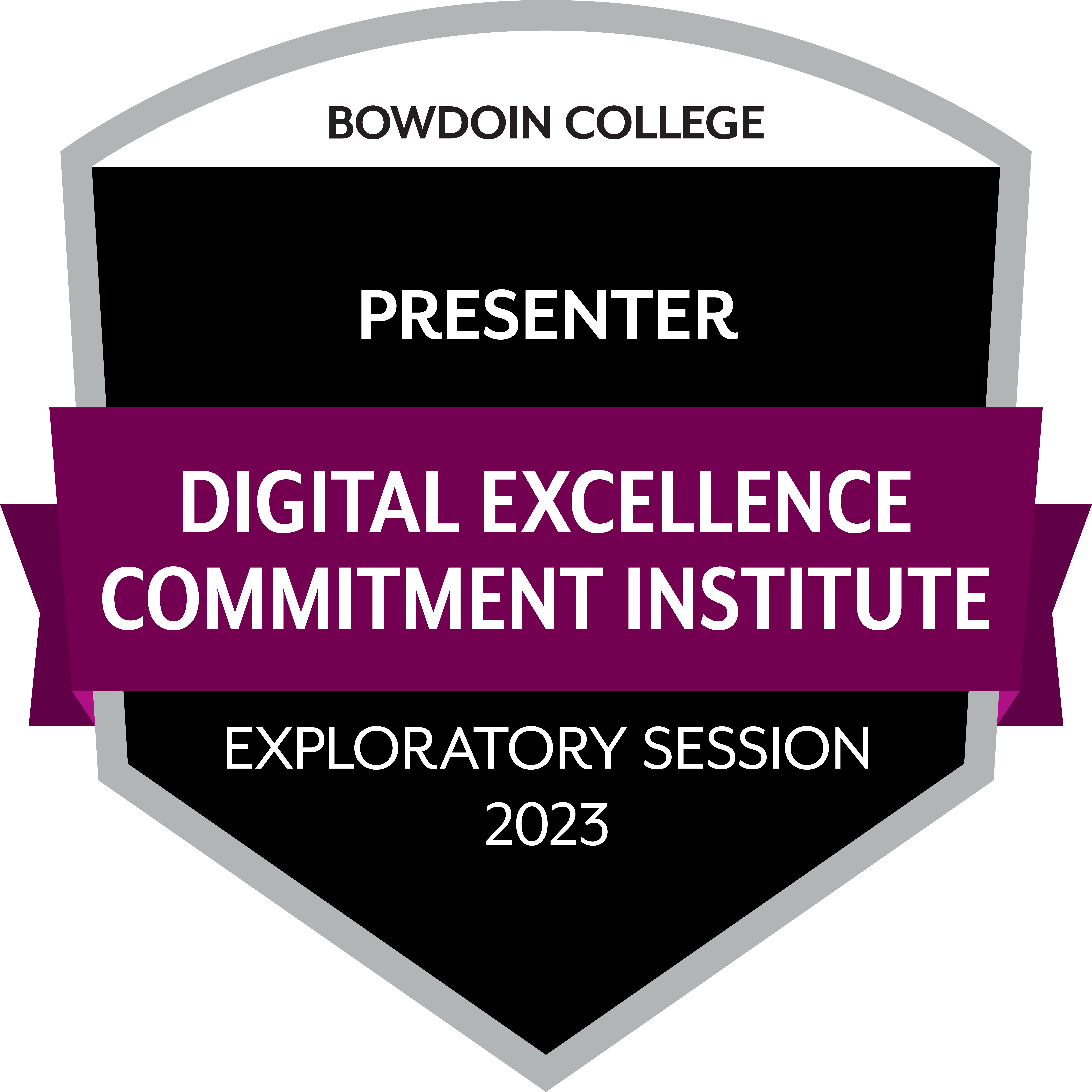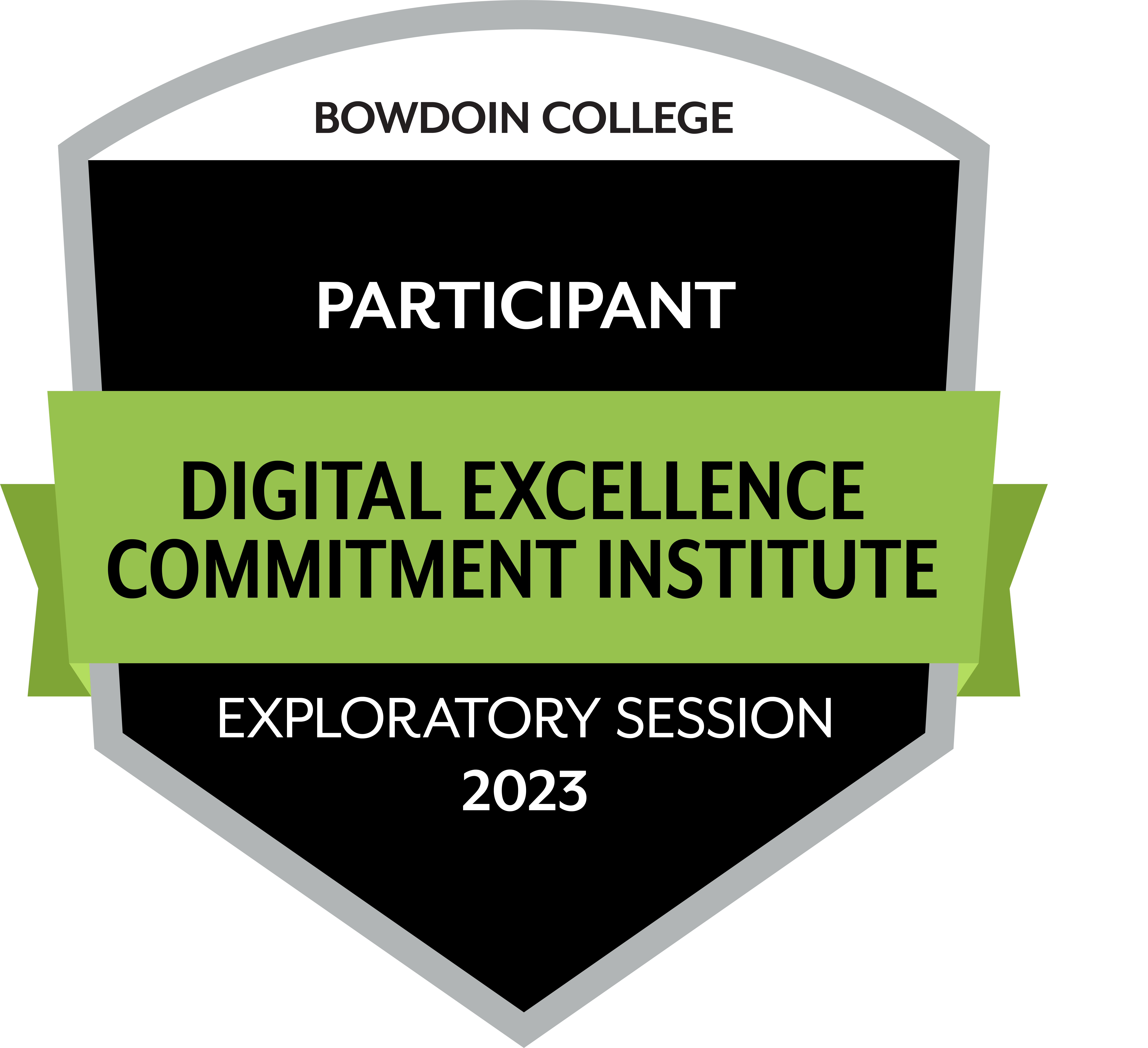Digital Excellence Commitment (DExC) Institute
Institute Goals
The goals of the institute not only align with the goals announced in the DExC launch announcement, but also support the recommendations outlined by the Working Group on Teaching and Technology while promoting effective pedagogical practices.
Questions? Contact Sherri Braxton, Senior Director for Innovation in Information Technology.
The institute will:
- Provide support to faculty in the use of active learning strategies and pedagogical innovation.
- Provide training, support, and opportunities for faculty to expand their knowledge and application of inclusive excellence and access through inclusive pedagogy and universal design
- Provide support to college faculty in advancing their research mission, including the areas of high-performance computing and the digital humanities.
- Designing courses and using instructional practices that are based on learning goals and that foster student curiosity, creativity, growth, and critical and independent thinking;
- Communicating ideas, theories, skills, and/or concepts from the relevant field in an accessible and intellectually challenging manner;
- Creating an inclusive and equitable learning environment that prepares students to value differences and interact constructively with a diversity of people, spaces, situations, and ideas;
- Demonstrating continued self-reflection and growth as an inclusive educator.
Submitting a Proposal
Faculty and academic partners such as Academic Technology and Consulting, the Library, and the Baldwin Center for Teaching and Learning are encouraged to submit proposals to present; topics may include, but are not limited to, the following:
- Accessibility and Universal Design for Learning
- Augmented Reality/Virtual Reality
- Digital Storytelling
- Open Education Resources
- iPads for Teaching and Learning
- High Performance Computing in Research and Scholarship
- Building Global & Cultural Competence using Canvas Tools
Exploratory Sessions (30 to 45-minutes)
The Institute includes a combination of Exploratory Sessions and Immersive Workshops. The Exploratory Sessions will be held in Spring. These 30-to-45-minute sessions will provide faculty and academic partners with an initial opportunity to explore the use of tools and technologies to support various pedagogical approaches.
Presenters and participants will each earn a digital badge.
Immersive Workshops
The Immersive Workshops will be held at various times during the semester. These full day workshops will be conducted to provide a deeper dive into technologies to address pedagogical strategies.
Stipends
Immersive Sessions held during the summer will include stipends for both faculty presenting and participating in the amounts of $400 and $200, respectively; co-presenters of workshops will split the stipends.
Previous Exploratory Sessions
- Enhancing Research Classes with Zotero and EndNote, Karen Jung & Sue O'Dell
- GIS in the non-geography classroom, Patrick Rael & Aaron Gilbreath
- "I found it on the internet!" A Primer for Student Digital Projects, Beth Hoppe
- Celebrating a Year with Canvas, Stephen Houser and Patrick Rael
- Videocriticism, Angel Matos
- ChatGPT and Foreign Language Study, Reed Johnson
- Using Virtual Reality to explore actual places, Reed Johnson and Paul Benham
- Designing Meaningful Groupwork, Irina Popescu and Katie Byrnes
- Exploring Eighteenth Century London Through Literature and ArcGIS Online, Ann Kibbie and Jennifer Snow
- The Digital Story As A Tool for Scholarship, Colin Kelly
- Required Reading? An Introduction to Open Educational Resources, Erin Valentino, Barry Logan, Carmen Greenlee, Kate Wing
- Implementing Universal Design for Learning and using the SAMR Model to Determine the Role Technology Can Play in Parts of Your Course, Alison Riley Miller and Juli Haugen

